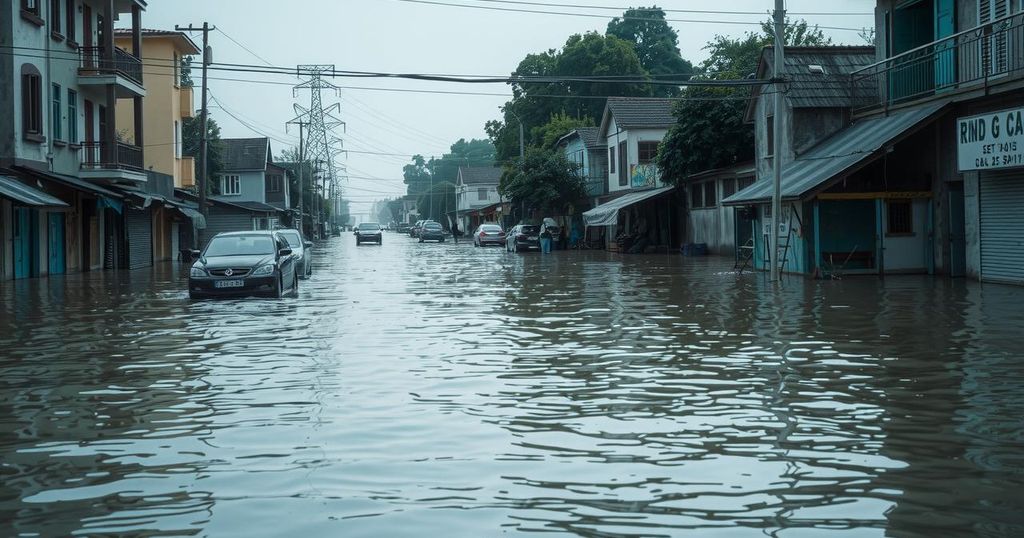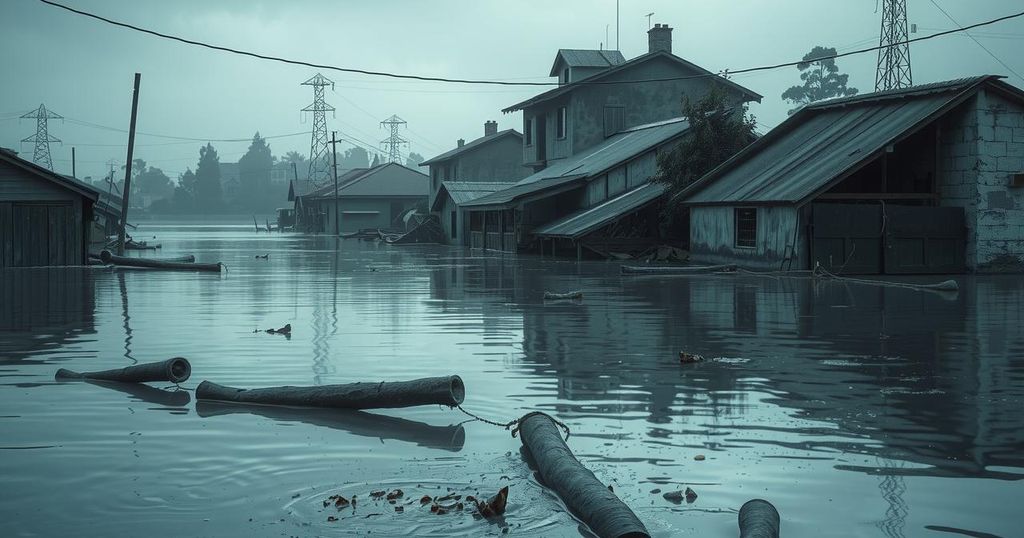Mozambique Braces for Cyclone Dikeledi: Flash Update as of January 2025
Mozambique faces challenges from Tropical Cyclone Dikeledi, which recently intensified while moving across Nampula province. Rainfall and winds up to 200 mm and 120 km/h are expected to impact numerous districts, putting over 255,000 individuals at risk. Preparatory efforts are underway, but humanitarian capacities are strained due to recent cyclones.
Mozambique is currently grappling with the challenges posed by Tropical Storm Dikeledi, which has recently intensified into a tropical cyclone while traversing Nampula province. Although the cyclone is predicted to weaken as it moves inland, forecasts suggest it may re-enter the warm waters of the Mozambique Channel near Angoche by January 14, where it could regain strength and potentially escalate to an intense cyclone. Strong winds and heavy rainfall, with totals reaching up to 200 millimeters within a 24-hour period, are anticipated to impact coastal districts including Mossuril and Angoche.
The National Institute for Disaster Management (INGD) indicates that approximately 255,310 individuals may be affected by Cyclone Dikeledi, with around 98,000 residing in high-risk areas. To mitigate the impacts, the government has activated anticipatory action protocols in both Angoche and Mongicual districts, focusing on community preparedness, preventive evacuations, and the deployment of local coordinators. Humanitarian organizations remain poised to offer assistance, although their capacities are currently strained due to the frequency of cyclone events in the region.
Overall, the provinces of Nampula, Cabo Delgado, and Zambezia continue to face severe weather conditions, particularly in the vicinity of the cyclone’s expected landfall. Heavy rainfall and destructive winds have been reported, contributing to hazardous sea conditions between Ilha de Moçambique and northern Zambezia. With Dikeledi’s winds reaching 120 kilometers per hour and rainfall amounts posing significant flooding risks, critical infrastructure, including schools and health facilities, is under threat. The cyclone is comparable to Cyclone Chido, expected to linger for a shorter duration and have localized effects, but the potential for extensive flooding and damage remains a pressing concern.
The situation in Mozambique is exacerbated by the recent intensification of Tropical Storm Dikeledi into a tropical cyclone. After making landfall in Nampula province, Dikeledi is forecasted to weaken temporarily but may regain strength upon re-entering the Mozambique Channel. The region has been impacted severely by cyclical weather patterns, making communities vulnerable to subsequent storms. The response by INGD highlights the importance of preparedness and rapid response given the substantial number of citizens at risk. Simultaneously, heavy rainfall and winds have the potential to disrupt essential services, jeopardizing the safety and wellbeing of affected populations.
In summary, Tropical Cyclone Dikeledi poses a significant threat to Mozambique, especially to the Nampula province, which is expected to be the most affected region. With over a quarter of a million people at risk, including many in high-risk zones, preparations are paramount. The activation of emergency protocols by INGD indicates proactive measures to mitigate impacts, although resources are currently strained due to previous storm events. Continued vigilance is essential as the situation evolves in the lead-up to Dikeledi’s possible reintensification.
Original Source: reliefweb.int




Post Comment